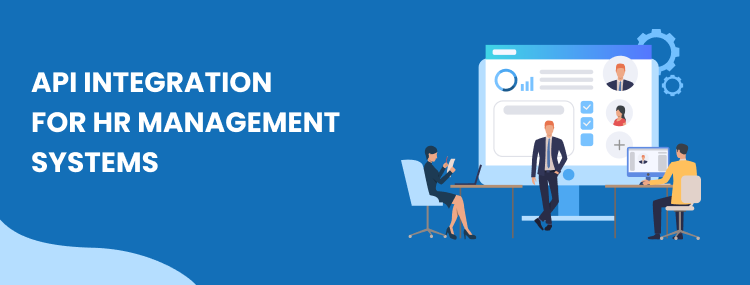In today’s fast-paced business landscape, HR professionals face the challenge of managing a myriad of tasks efficiently. From recruitment and onboarding to payroll and employee management, the demands on HR departments are constantly evolving. However, with the advent of API integration for HR management systems, organizations can now streamline their processes, enhance efficiency, and make data-driven decisions. In this article, we will explore the key benefits of API integration and how it revolutionizes HR management systems.
Enhanced Efficiency: API integration enables HR management systems to seamlessly connect with other software applications, eliminating the need for manual data entry and minimizing errors. By automating tasks such as employee data synchronization, leave management, and performance tracking, HR professionals can save time, reduce administrative burdens, and focus on more strategic initiatives. With real-time data updates across systems, managers can make informed decisions promptly, enhancing overall efficiency.
Streamlined Processes: By integrating APIs into HR management systems, organizations can streamline various HR processes. For example, API integration with recruitment platforms allows HR teams to automatically import candidate data, schedule interviews, and update applicant statuses without toggling between multiple systems. Furthermore, integrating APIs with payroll software ensures accurate and timely processing of employee salaries, tax deductions, and benefits. These seamless connections between systems eliminate redundant tasks and data discrepancies, reducing the likelihood of errors and improving overall HR process efficiency.
Empowering HR Professionals: API integration empowers HR professionals with a comprehensive and unified view of employee data. By integrating APIs with various systems such as applicant tracking, performance management, and learning management, HR teams can access relevant information in real-time. This enables them to make data-driven decisions regarding recruitment strategies, employee development, and performance evaluation. With a holistic view of employee data, HR professionals can identify patterns, measure KPIs, and implement strategies that drive productivity, engagement, and retention.
Customization and Scalability: API integration allows HR management systems to adapt to the unique needs of each organization. APIs provide the flexibility to customize workflows, data fields, and reporting parameters based on specific requirements. Additionally, as organizations grow or adopt new HR technologies, API integration enables seamless scalability. HR systems can integrate with new tools, modules, or third-party applications without disrupting existing processes, ensuring that the HR infrastructure remains agile and future-proof.
Improved Employee Experience: API integration enhances the employee experience by providing a seamless flow of information between HR systems. For instance, integrating APIs with employee self-service portals enables employees to access their HR information, submit leave requests, view pay stubs, and update personal details conveniently. This self-service functionality reduces dependency on HR staff, empowers employees, and improves satisfaction levels. Moreover, API integration enables HR systems to send automated notifications and reminders, keeping employees informed about important events, deadlines, and policy updates.
In conclusion, API integration for HR management systems revolutionizes HR operations by enhancing efficiency, streamlining processes, empowering HR professionals, enabling customization and scalability, and improving the overall employee experience. By seamlessly connecting HR systems with other applications, organizations can unlock the full potential of their HR data, drive strategic decision-making, and foster a productive and engaged workforce. Embracing API integration is a crucial step towards maximizing the benefits of technology in HR management.


